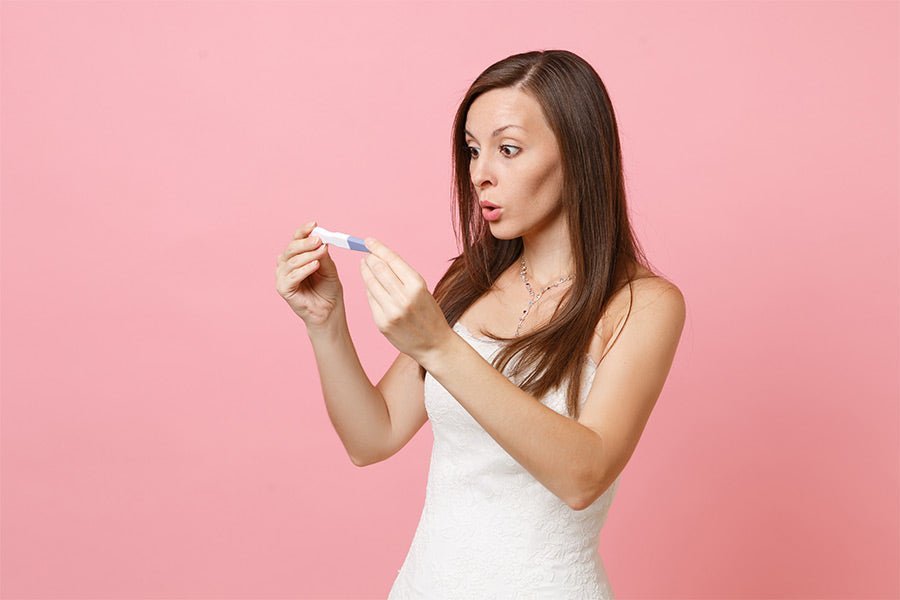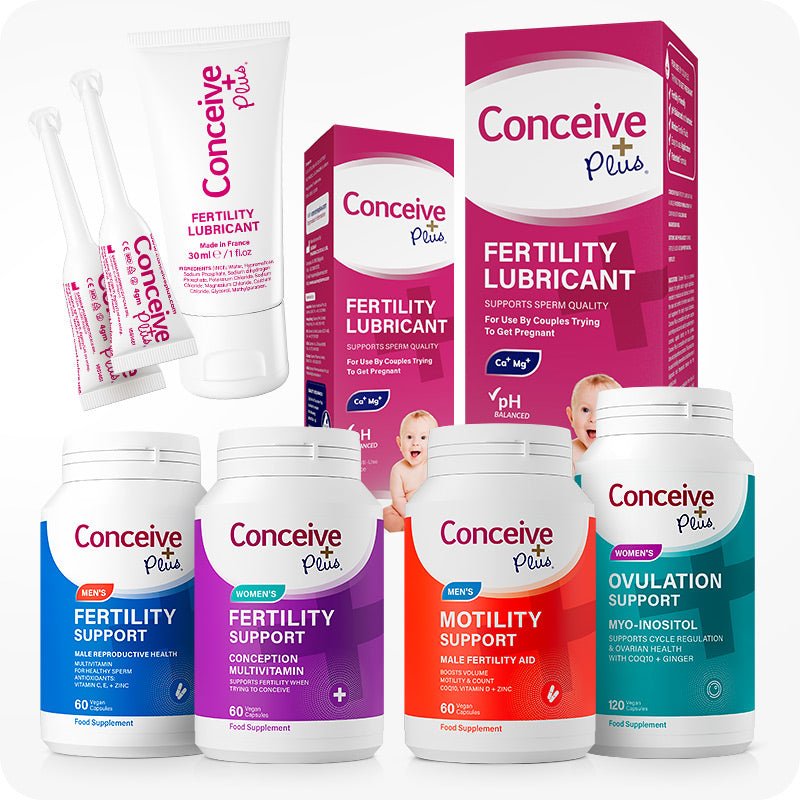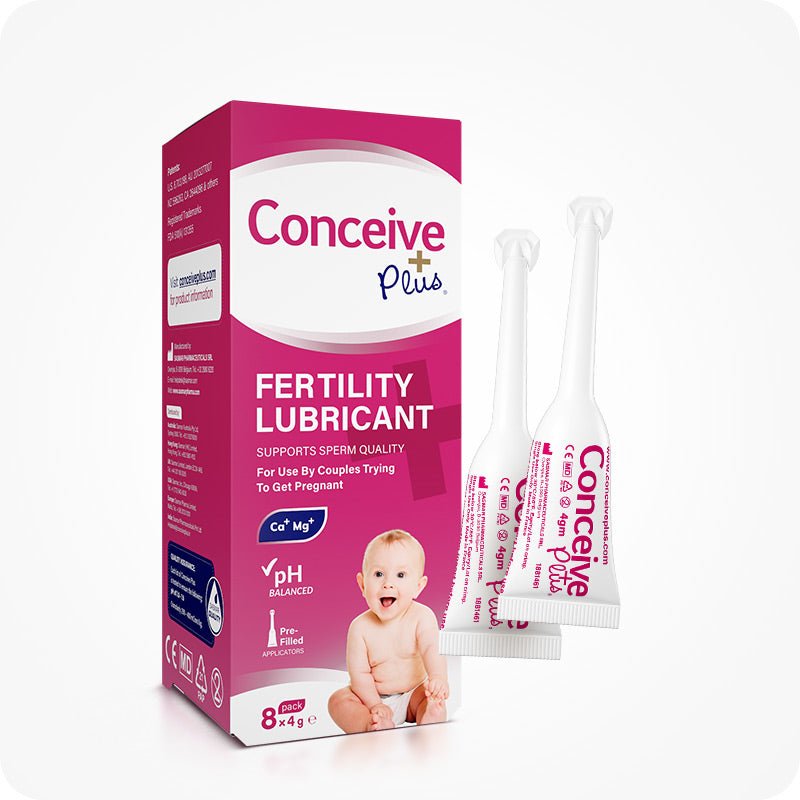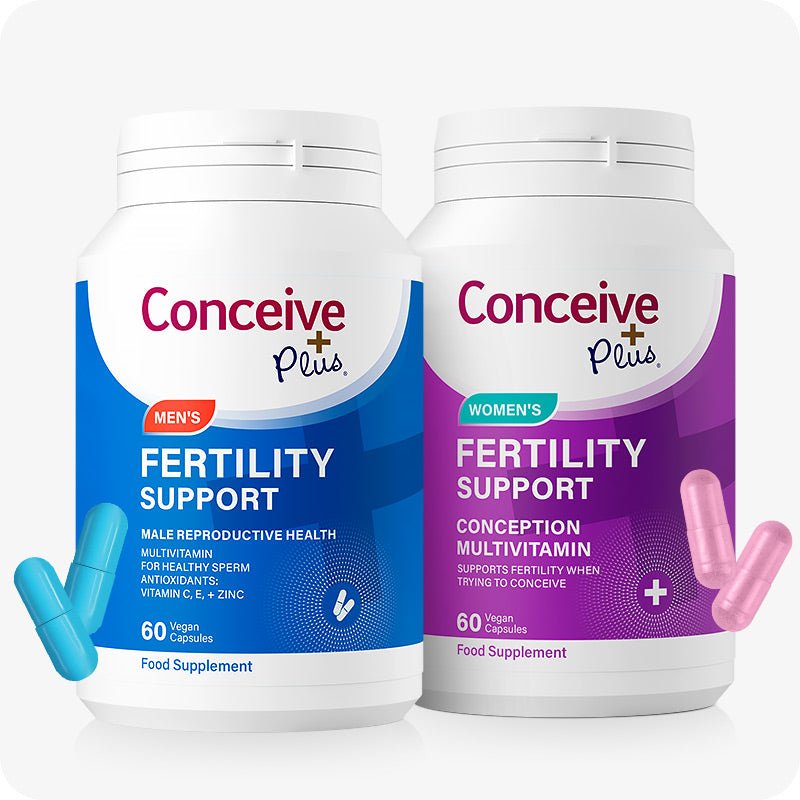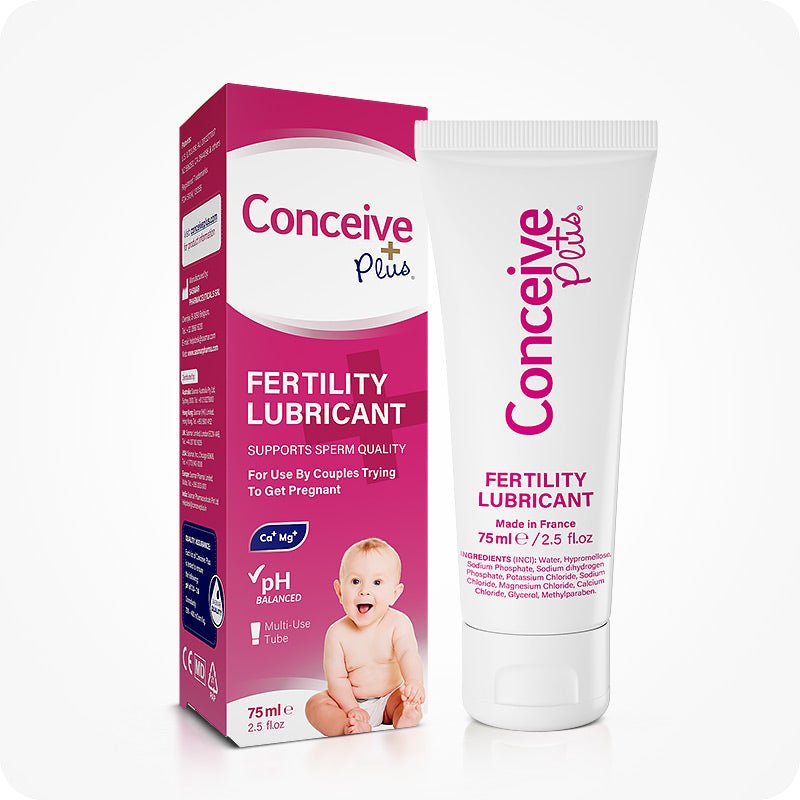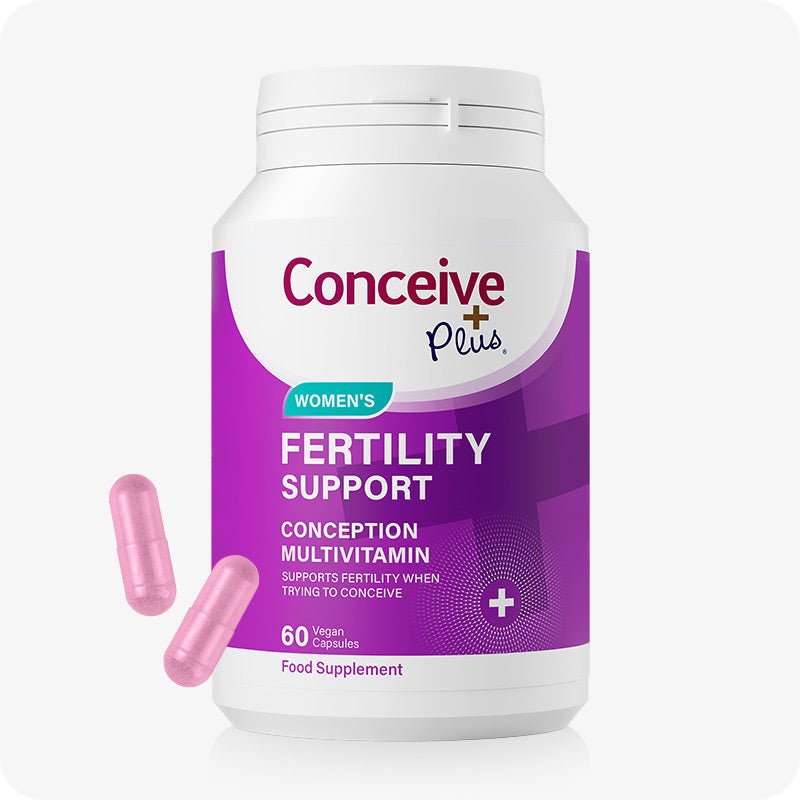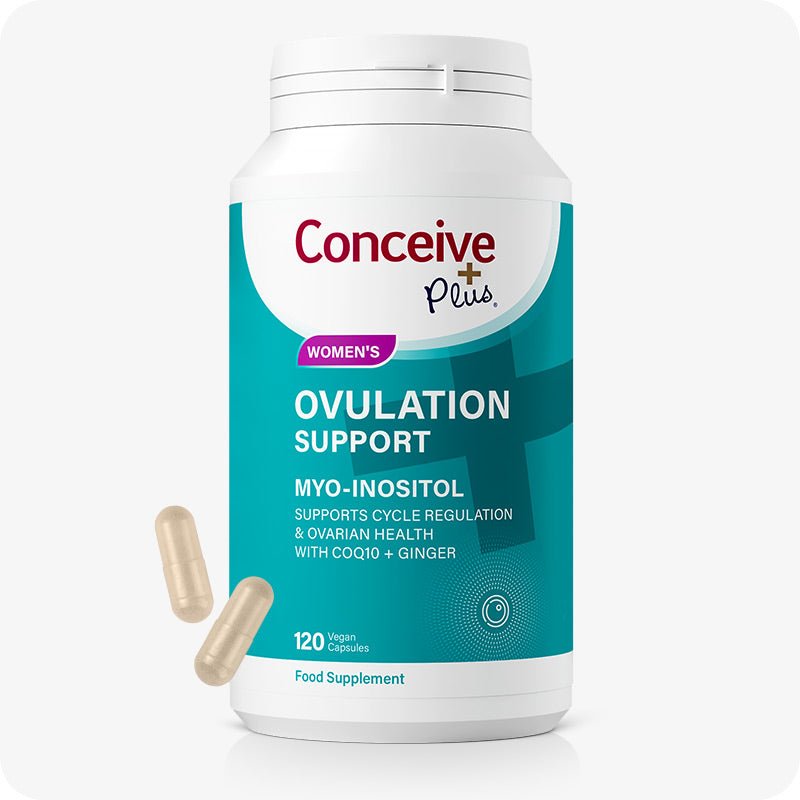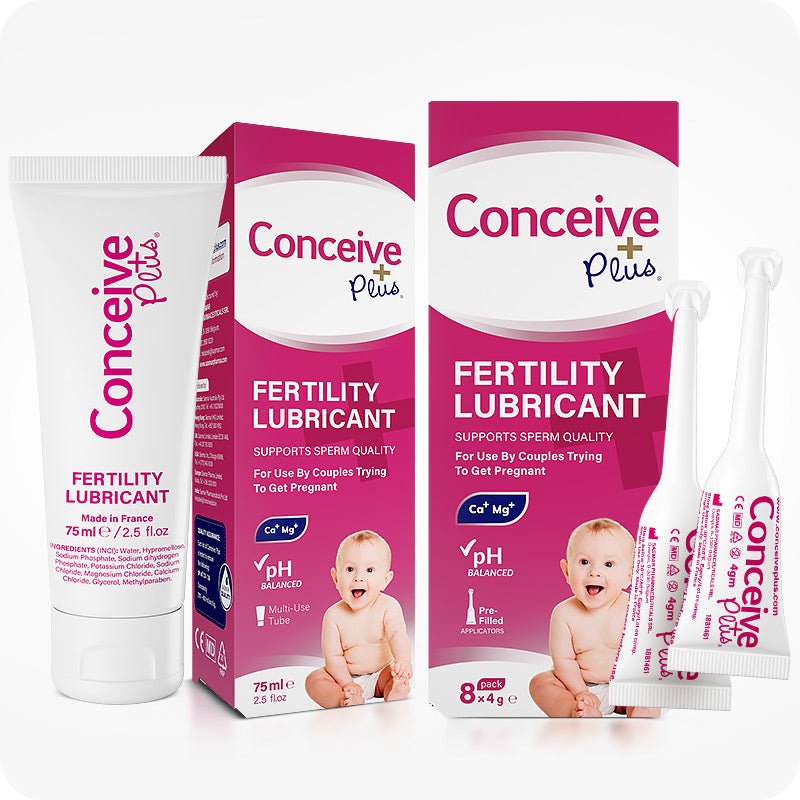How to Get Pregnant: The Basics

When trying to get pregnant, it helps to understand the process of conception, ovulation and implantation. Although it all comes down to sperm, an egg, and perfect timing, the process behind getting pregnant is quite intricate.
Whether you’ve just started your baby-making journey or have been trying to conceive for a while, asking questions like how often should you have sex to get pregnant or how long it takes to get pregnant is perfectly normal.
Read on to understand how pregnancy happens and what you can do to improve your chances of conceiving.
How Does Pregnancy Happen?
Although conception typically occurs in the middle of a woman’s menstrual cycle within a very short fertile window, getting pregnant also relies on specific hormone fluctuations, sperm motility, and three natural processes known as ovulation, fertilisation, and implantation [1].
During the menstrual cycle, which typically lasts 28 days, the female hormones oestrogen and progesterone fluctuate in a controlled way to prepare the female body for pregnancy.
These hormones encourage a female’s eggs to grow in the ovaries each month. When an egg is mature, it is ready to be fertilised by sperm and is released by one of the ovaries during the process known as ovulation.
A mature egg is viable for 12-24 hours and if it is not fertilised by sperm during this time, it dies and is expelled from the body via menstruation.
Sperm, which is made in the testicles, is discharged from the penis during ejaculation when a man orgasms. Although millions of sperm are released during ejaculation, only one sperm will eventually fertilise the egg.
That said, sperm undergo an arduous journey through the female reproductive tract and many don’t survive. It also takes the help of many sperm for just one to penetrate an egg [2]. On a positive note, however, sperm can live for 3-5 days, meaning that having sex 2-3 days before ovulation, or on the day you ovulate, could result in pregnancy.
After ovulation, the female hormones encourage the uterus lining to thicken in preparation for implantation. If an egg has been successfully fertilised it becomes a zygote and floats around in the uterus for a day or two. Once it reaches the uterine lining, the zygote implants itself and it is from here that it receives adequate nutrients to survive and grow.
Implantation normally begins approximately 6 days after fertilisation and can take up to 4 days to complete. The embryo forms from the cells on the inside of the zygote and the placenta evolves from the cells on the outside of the zygote.
After implantation has occurred, the female body produces human chorionic gonadotropin (hCG). This hormone helps to maintain the corpus luteum, which is responsible for producing progesterone to sustain the thicker uterus lining.
The presence of hCG is detected by pregnancy tests and its detection is typically what confirms pregnancy. The embedded embryo then grows into the foetus and develops in the womb over the following 9 months.
How Likely Is It to Get Pregnant During Ovulation?
It’s very likely. Ovulation is the phase of the menstrual cycle when women are most fertile. Having intercourse in the 2-3 days before or during ovulation will significantly increase the possibility of conceiving.
Do Experts Recommend How to Do Intercourse To Get Pregnant?
There are no exact instructions on how to do sex to get pregnant, but unprotected intercourse has to happen during a woman’s fertile window for fertilisation to occur.
Approximately mid-way through the menstrual cycle, 12-16 days after your last period, ovulation typically occurs. This is the stage of the menstrual cycle when a mature egg, ready for fertilisation is released by an ovary.
Although an egg only lives for 12-24 hours, sperm can survive in the female reproductive tract for as many as 5 days.
Essentially, how to get pregnant by sex comes down to having unprotected intercourse in the 3-4 days before ovulation, and on the day of ovulation, to ensure that healthy sperm will encounter a mature egg [3].
At a Minimum How Many Days to Get Pregnant?
Conception occurs as soon as an egg is fertilised by an egg. However, implantation in the uterine lining can take a week or more to happen. After that, it can take a few more weeks for the body to produce enough hCG to be detected by a pregnancy test.
How Likely Is It to Get Pregnant On Your Period?
Getting pregnant on your period is not likely. Menstrual bleeding occurs when the uterine lining is shed, which is typically signalled by the hormones when no fertilised egg has been implanted after ovulation.
However, some women may notice spotting, or light bleeding, around the time of implantation which typically occurs 10-14 days after conception [4]. This can happen when the fertilised egg burrows its way into the lining of the uterus and the show of blood is sometimes confused with a period.
How Likely Is It to Get Pregnant During Your Period?
Getting pregnant during your period is not likely, but it might appear to be the case if you have a short menstrual cycle. For women with a short menstrual cycle, ovulation can happen very soon after their period ends.
The short time between menstruation and ovulation can make it appear as if they’ve conceived during their period.
How Often Should You Have Intercourse to Get Pregnant?
When hoping to conceive, couples often ask questions like how many times should you have sex to get pregnant, or how often to have sex to get pregnant. The truth is, it doesn't matter how many times you have sex as long as you have intercourse at the right time of the month.
That said, when trying to conceive, having sex every 2-3 days is recommended to ensure that sperm is present in the female reproductive tract during ovulation and the fertile window [5]. In addition to timing intercourse during your fertile window, incorporating fertility supplements rich in nutrients such as zinc, folate, and CoQ10 into your diet can enhance sperm and egg health, further increasing your chances of conception. If that is not viable, try to have sex 2-3 days before ovulation, and the day of ovulation, to maximise your chances of getting pregnant.
Although women’s eggs only survive for a maximum of 24 hours, sperm can survive for 5 days. Therefore, 2-3 days before ovulation and the day you ovulate are considered the most fertile days of the month.
How Long Does it Take After Sex to Get Pregnant?
After having sex during your fertile window, conception can occur as soon as an egg is fertilised by sperm. However, it can take 1-2 weeks for the fertilised egg to implant into the uterine lining and for pregnancy to be detected.
How long to get pregnant will depend on the health of each partner’s reproductive system but most couples typically conceive within 6-12 months of having unprotected sex.
If you’ve been trying for longer without success, it can be helpful to consult with a fertility specialist for further evaluation.
Conclusion
Couples trying to conceive can significantly benefit from understanding how pregnancy happens. Irrespective of how you have sex, or how many times you have sex, it is the timing of intercourse that is ultimately important. Additionally, knowing how to calculate your due date according to ovulation can provide more precise information about your pregnancy timeline.
For instance, having sex in the 2-3 days before ovulation, as well as the day of ovulation, can significantly improve your chances of getting pregnant.
References
- Planned Parenthood - How Pregnancy Happens - https://www.plannedparenthood.org/learn/pregnancy/how-pregnancy-happens
- Fertilisation: Molecular Biology of the Cell - https://www.ncbi.nlm.nih.gov/books/NBK26843/
- American Pregnancy Association - How to Get Pregnant: Best Tips to Help You Conceive - https://americanpregnancy.org/getting-pregnant/how-to-get-pregnant/
- Mayo Clinic - Is Implantation Bleeding Common in Early Pregnancy - https://www.mayoclinic.org/healthy-lifestyle/pregnancy-week-by-week/expert-answers/implantation-bleeding/faq-20058257
- American College of Obstetricians and Gynecologists - https://www.acog.org/womens-health/experts-and-stories/the-latest/trying-to-get-pregnant-heres-when-to-have-sex




